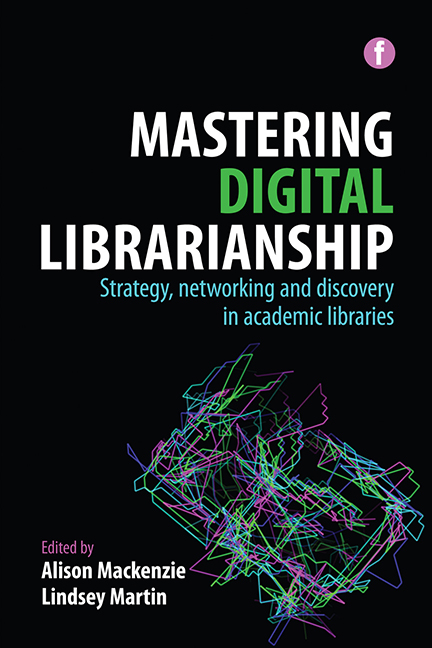7 - Mobilizing your library
Published online by Cambridge University Press: 13 September 2022
Summary
Introduction
Keeping the library relevant in an increasingly digital world presents challenges for the effective management and delivery of library services. While there are many opportunities for libraries to operate in this environment, ensuring that library services meet stakeholder needs and expectations may be best served by taking a strategic approach to service development. This chapter focuses on the role of strategy in the digital environment, using the development and implementation of a mobile strategy at the University of Glasgow library as a case study.
Context
Until relatively recently, access to the internet was dependent on having a desktop or laptop computer. However, today a growing number of people are likely to access digital content across a multitude of mobile devices. Increasing sales of smartphones and tablets, the flexibility of web content and the introduction of 4G networks are creating consumers who expect onthego access to the internet whenever they want it. In the UK, nearly onethird of page views are now from smartphones (24%) and tablets (6.8%) and this trend is growing monthly (comScore, 2013). According to a report from mobile manufacturer Ericsson, by 2015 80% of people accessing the internet will be doing so from mobile devices.
In the higher education sector, surveys of UK universities reflect a similar growth in web activity on mobile devices, with statistics showing visits to university websites from mobile browsers increasing by as much as 200% from November 2010 to November 2011 (Power, 2012). The Horizon report on the technology outlook for UK tertiary education speculates that the next generation of students will be owners of internetcapable mobile devices that they will want to use for learning (Johnson and Adams, 2011).
Background
Staff at the University of Glasgow library took an early interest in mobile developments and a Mobile Technologies Group (MTG) was formed during 2010. In common with many libraries, the original focus was primarily on the development of a mobile interface for catalogue search and library account functionality. Investigation into the potential use of SMS (short message service) for circulation notices and instant messaging for reference and enquiry services was also explored. However two factors prompted a reassessment of the range and scope of this project. Data from Google Analytics showed that although mobile traffic was small in relation to desktop browser access, it was steadily growing.
- Type
- Chapter
- Information
- Mastering Digital LibrarianshipStrategy, networking and discovery in academic libraries, pp. 123 - 138Publisher: FacetPrint publication year: 2014



